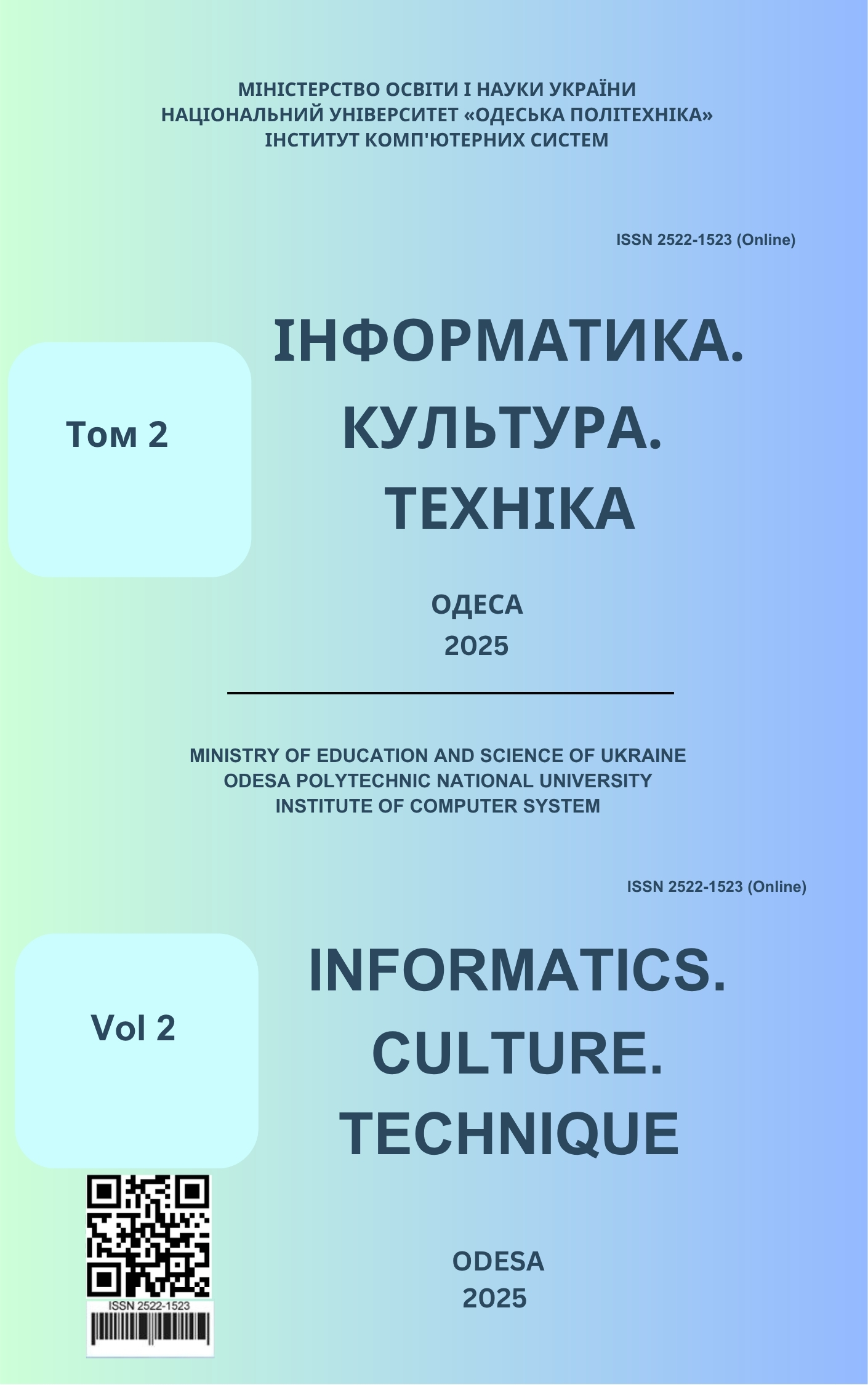Culture and creativity in the digital age: From the dictatorship of form to the plasticity of human-dimentionality
DOI:
https://doi.org/10.15276/ict.02.2025.60Keywords:
Plasticity of human-dimensionality, personality thesaurus, information systems, artificial intelligence, culture, creativity, sociocultural practices, subjectivity, sense, freedomAbstract
This study examines the fundamental transformations of culture and creativity under the influence of modern information and communication systems, particularly generative artificial intelligence (AI). The paradox of the modern digital age is analyzed: the boundless generation of "forms" (content) leads to the inflation of "content" (meaning), which poses a threat to authentic human creativity and subjectivity. Information systems are viewed as a "digital mirror" that not only reflects but also actively shapes sociocultural practices, increasing the risks of cultural homogenization and manipulative influence. The danger of the erosion of critical thinking and the emergence of new forms of addiction that threaten the existential health of the individual is explored. The methodological basis proposed is a philosophy of human-dimensionality, drawing on the conceptual potential of the Ukrainian post-non-classical tradition (V. Stepin, I. Dobronravova, I. Ershova-Babenko, Yu. Melkov, L. Bogataya, and others) and meta-anthropology (N.Khamitov). It demands not only the proportionality of technology to the individual, their dignity, and potential for development, but also the creation of a digital environment that will enhance humanity in humans. The central concept of the study is the personality thesaurus – a unique, dynamic system of meanings, values, and metaphors through which a person perceives and creates their reality. Two types of thesauri are contrasted: a unique, existentially lived personality thesaurus and the average, statistical algorithmic thesaurus. The ontological and epistemological status of these two phenomena and their influence on creative processes are analyzed in depth. The main thesis of the work is the assertion that the key creative and simultaneously educational practice in the new era is the plasticity of human dimensions – the conscious, creative self-education of the individual through purposeful development of one's own thesaurus. Specific practices for enriching it are analyzed: deep reading, authentic dialogue, and the art of asking real questions. It is concluded that this individual creative work is the path to preserving freedom, subjectivity, and existential health in the context of the total informatization of culture. The article substantiates the need to shift from individual creative practices to a holistic social strategy aimed at cultivating human-dimensionality in education, culture, and the ethics of the digital space

